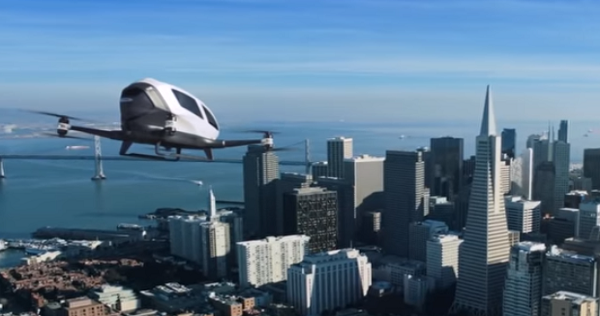
The current technocratic hurricane plagued by overengineering, as science fiction coalesces with the demand to replace reliable and tested mechanized infrastructure with digital components, has summoned the realm of the infeasible in a jaded multi-billion dollar experimental wonderland of a wildly overzealous innovative spirit, threatening to compromise the integrity and stability of the manufacturing sector.
This unsettling trend of directly integrating raw though experiments into the physical development of products, a system based on theory, rather than practicality, has led to the disastrous performance of self-driving cars, the gross inefficiencies of alternative energy technologies in creating a possible environmental hazard due to the toxicity of storage batteries, and finally the drone-craze threatening to fill the skies with a Jetson’s-like hover car traffic jam of aerial tests in the quest for the ultimate payday, while compromising public safety.
The $1 million collaboration between the Silicon Valley business and the contracting government entity, is just a small part of the broad expanse of research exploring the plausibility of flying cars, as key players from the tech and aerospace industries are staking claims in the potentially lucrative marketplace.
As design teams backed by seemingly limitless resources chase the holy grail of building a functioning airborne automobile, skeptics on the sideline wonder how the technology will be integrated into the vast and chaotic framework of the modern nightmare of transportation. Accidents on the surface do not always result in fatalities, and what insufferable consequences are allowed as the low altitude airways potential evolve into high traffic density aerial highways? A swarm of drones and hovering cars like a busy fog above a bustling urban core, does not elicit hope in preserving the remnants of a quality of life in the metroplexes of the world. The outlying logistics are daunting- designating and enforcing airspace, implementing control and monitoring systems, developing fail safe measures, enacting noise management systems, coordinating thousands of air traffic controllers- the list goes on and on.
Legendary science fiction writer Arthur C. Clarke warns of the harsh consequences spawned by the hyper development of technology in the short story Superiority. The plot visits a future society locked in a mortal war with an overmatched foe. The leaders of the dominating force choose to scrap existing and reliable technology for untested and experimental innovative machines and end up being completely annihilated.
Word has it that Uber is working on a secret project to master time travel for the purposes of progressive societal engineering, with a hover car in the spirit of the DeLorean, Michael J. Fox and Christopher Lloyd. Powered by the “Flux Capacitor”, the first target will not be Stalin or Hitler, but Rush Limbaugh. (Could see that one coming from a mile away.)
While the tech world attempts to make the quantum jump from road transportation to the heavens, a similar fate can be envisioned. Add to the mix, a complete aversion to integrating fossil fuel hybrid motors to combat the obvious shortcomings and hazards of lithium-ion batteries and derivatives, and viability is reduced to a pipe dream. At least someone will be getting rich from the taxpayer funded government subsidies supporting an under performing product. Think electric cars and a guy who is named after a scent.
Read the Automotive News story here.
